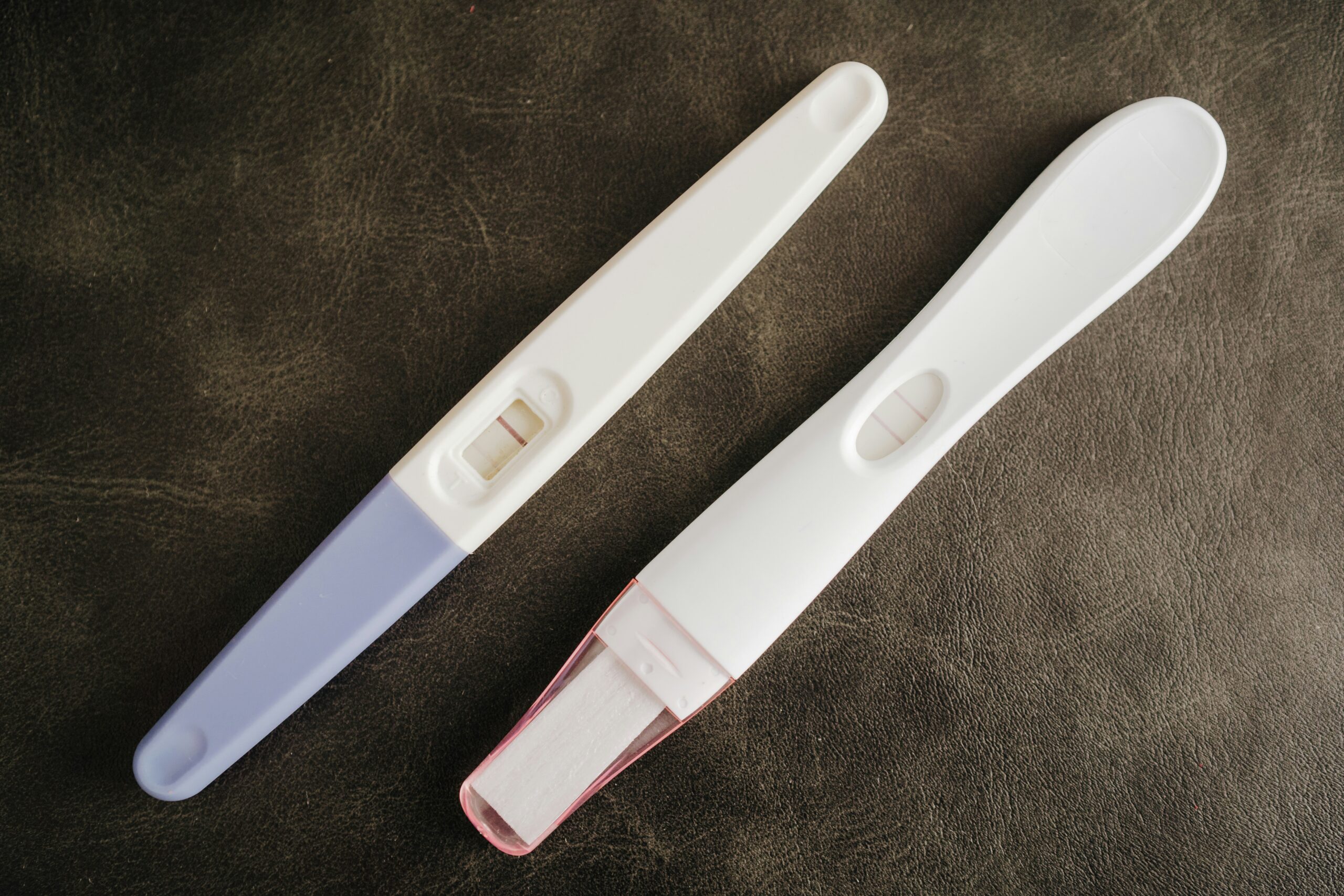When I entered the world of infertility, I was so blissfully unaware of the challenges ahead for me. Many women, my former self included, view IVF as the “magic bullet” to getting a baby in your arms.
Today’s culture has taught us that if you can afford the cost, you can be successful at IVF. Pretty simple, right? Simple, that is, until you realize our reproductive system is only one piece of the fertility puzzle and your chances of conception are greatly impacted by the other systems in the body, such as the immune system and microbiome.
I had already lost two daughters by the time I discovered that my immune system was not only the cause of my infertility but also my miscarriages. Both my OB/GYN and reproductive endocrinologist never considered my immune system, and I’ve now come to realize most traditional fertility doctors are classically trained to focus solely on the reproductive system, often overlooking the impact of other foundational systems on fertility.
I was told my situation was bad luck and my odds would improve soon.
So I turned inward, seeking out my own research and understanding, and eventually finding my way to Dr. Joanne Kwak Kim, a specialist in the field of reproductive Immunology at Rosalind Franklin University, who was, within one ultrasound and blood draw, able to pinpoint the major issues happening within my immune system.
Hyperactivity within my immune cells and antibody levels were causing my body to treat my pregnancies as foreign threats, creating a defense so strong that I couldn’t stay pregnant.
To carry my son, Elijah, now 6 years old, I successfully fought against my own body’s defenses by using an intense autoimmune drug protocol similar to what transplant patients receive to prevent organ rejection.
My treatment regimen involved intravenous infusions of immunoglobulin (IVIG) along with a drug protocol that included immune suppressants such as tacrolimus, hydroxychloroquine, and prednisone. I underwent 3-hour IVIG infusions twice a week and had a total of 36 ultrasounds to monitor my high-risk pregnancy.
I spent most of my pregnancy on bed rest due to a hematoma next to my growing baby, and I stuck to a very intense, anti-inflammatory diet where I essentially ate protein and vegetables.
Even years after the trauma, I still can’t shake the feeling we’re not doing enough to support women on their path to conception, including the critical years before they decide to conceive. I wish I had better support for myself during those years to prepare my body for the family I wanted to have—and to prevent irreparable damage to my immune system and, consequently, my fertility. This is now my purpose and why I launched BOND, an innovative supplement brand for hormone health and overall reproductive support. I aim to build awareness, share research, and advocate for better support for women’s reproductive health.
How to advocate for your immune health
After facing my own struggle with being autoimmune infertile, I want to try to prevent others from falling into the same trap. Here’s what you should know if you’re getting a fertility diagnosis that doesn’t feel right.
Do not accept unexplained fertility as the final diagnosis
For every issue in every walk of life, there is a root cause. If there is no cause, there is no issue—when you break it down, it’s the simple fundamentals of physics. But for some reason, we’ve accepted ‘unexplained infertility’ as an official diagnosis, as if it provides real answers as to what we are going through. It doesn’t. (Has ‘unexplained’ ever been used as a definition of anything? Would we accept ‘unexplained’ if we were battling another ailment in our body? Definitely not.) We walk out of our doctor’s offices without question, looking down a dark, endless tunnel with just hope that at some point, a pregnancy will work out for us, and the advanced reproductive treatments will, somehow, magically, just work.
Of the population experiencing infertility, 30 percent of cases are unexplained. It’s staggering we accept this so readily. The American Journal of Reproductive Immunology published a report on potential biomarkers of infertility associated with microbiome imbalances. From this data, I discovered three key learnings about this community of women:
- 73 percent are deficient in vitamin B and/or vitamin D
- 65.5 percent have an issue in their immune system
- 56 percent have metabolic syndrome
These are significant statistics that should be considered and pursued by both those battling infertility and doctors diagnosing unexplained infertility to seek effective treatment plans. There are other avenues to explore.
Seek to support your microbiome as a top priority
If every issue has an underlying cause, the primary consideration should start with the microbiome—particularly the gut—as gut microbiota are the most abundant and functionally critical microflora. Disturbance to your body’s gut microflora leads to an imbalance and disruption in your body’s microflora, called dysbiosis. When you have open tight junctions in your cells, foreign antigens, molecules, or molecular structures recognized by the immune system as non-self can enter the bloodstream. This can activate the immune system and may travel via the bloodstream to target various systems in the body. Maintaining a healthy microbiome supports the immune system’s normal functioning, a crucial pregnancy regulator that is often overlooked in reproductive health. Supporting the body with lactobacillus-rich probiotics and prebiotic fiber, which promotes the production of short-chain fatty acids and lactobacillus, is essential.
In other words, when the tiny creatures living in your gut that help your body work properly are balanced, your immune system functions well. But if they’re out of whack, your immune system might get confused and attack a pregnancy like it’s a threat.
Listen to the signs your body’s signals to tap into which systems need support
The immune, metabolic, and endocrine systems all signal underlying issues within, which you may notice if you observe closely. In my case, I had stabbing pains in my abdomen, more than 30 food sensitivities, and bowel irregularity. These were all signs there was something more significant happening in my immune system, but I couldn’t get anyone to discuss these issues alongside my fertility. To my fertility doctors, they were separate issues. And to my GI doctor, they weren’t connected to my miscarriages. These two branches of medicine, simply, would not connect, even though we know every system in the body is somehow connected.
My doctor at the time had a sign in his office that said, “I didn’t go to med school for you to be Dr. Google,” which initially scared me out of advocating for myself. But remember, you are the only person who lives in your body and can interpret underlying symptoms. Any doctor who isn’t listening to your opinion or actively participating in solving for your own health doesn’t have your best interest in mind.
Support inflammation and oxidative stress daily
No doubt the world we live in greatly impacts how the foundational systems of our body function. The inflammation tax on our bodies is like nothing we’ve seen before, and sadly, most of the general population believes what they eat keeps them healthy enough to combat environmental factors and toxins.
I take BOND’s Daily Balance, a drinkable multivitamin packed with 15 essential nutrients to support our foundational systems, hormone balance, and reproductive potential. We carefully crafted this formulation with clinically-backed ingredients to simplify the complex regimen often associated with hormonal support and provide you with the antioxidants needed to help women take better care of their fertility potential.
In sharing my journey, I hope to empower other women facing similar struggles. Infertility is a multifaceted issue that demands a holistic approach, encompassing not just the reproductive system but the immune system, microbiome, and overall health.
By recognizing the interconnectedness of our body’s systems and advocating for ourselves, we can better navigate the challenges of infertility. Remember, you are not alone, and with the right support and knowledge, there is hope. Stay curious, trust your intuition, and never stop seeking the answers you deserve.
Be your own advocate
Start by educating yourself on how immune health impacts fertility. Strive for a balanced immune system, whether or not you have an autoimmune condition. The body encounters numerous immune triggers and mechanisms to sustain a pregnancy, so it’s essential for everyone to prioritize their immune health and microbiome.
If you are having trouble getting pregnant and are seeking additional answers, then ask your doctor to do additional blood tests. Many offices have a “recurrent miscarriage panel” that they can run as a starting point, but you also want to ask for an immune antibody panel to check your immune system in relation to your fertility. This panel should test for NK cells, TH1/TH2 ratio, and antinuclear antibodies. If your doctor isn’t supportive of your investigation, you can work directly with Pregmune to take their IRMA test. It’s the first-ever comprehensive AI-powered fertility assessment which will provide you with a baseline of knowledge to see if you need to pursue next steps.
When exploring reproductive immunology, it’s crucial to find a specialist in this field, as typical reproductive endocrinologists and IVF doctors may not be able to provide the necessary support. There are a few in the US, with many taking remote patients; here is a list from the American Society of Reproductive Immunology.
In sharing my journey, I hope to empower other women facing similar struggles. Infertility is a multifaceted issue that demands a holistic approach, encompassing not just the reproductive system but the immune system, microbiome, and overall health. By recognizing the interconnectedness of our body’s systems and advocating for ourselves, we can better navigate the challenges of infertility. Remember, you are not alone, and with the right support and knowledge, there is hope. Stay curious, trust your intuition, and never stop seeking the answers you deserve.
Don’t be afraid to ask questions
You have every right to ask questions, seek a second opinion and research potential solutions for yourself. A good doctor should listen to your concerns and work collaboratively with you to address all aspects of your health, including your immune system.
Author
-

Caryn Johnson is the Co-Founder and CEO of BOND, an innovative line of supplements reimagining hormone and reproductive health, inspired by her experience with infertility. The former Vital Proteins Chief Marketing Officer launched BOND in the Fall of 2023, fusing her professional expertise with her passion to help women take a more proactive and empowered approach to caring for their cycle and reproductive health.
View all posts





